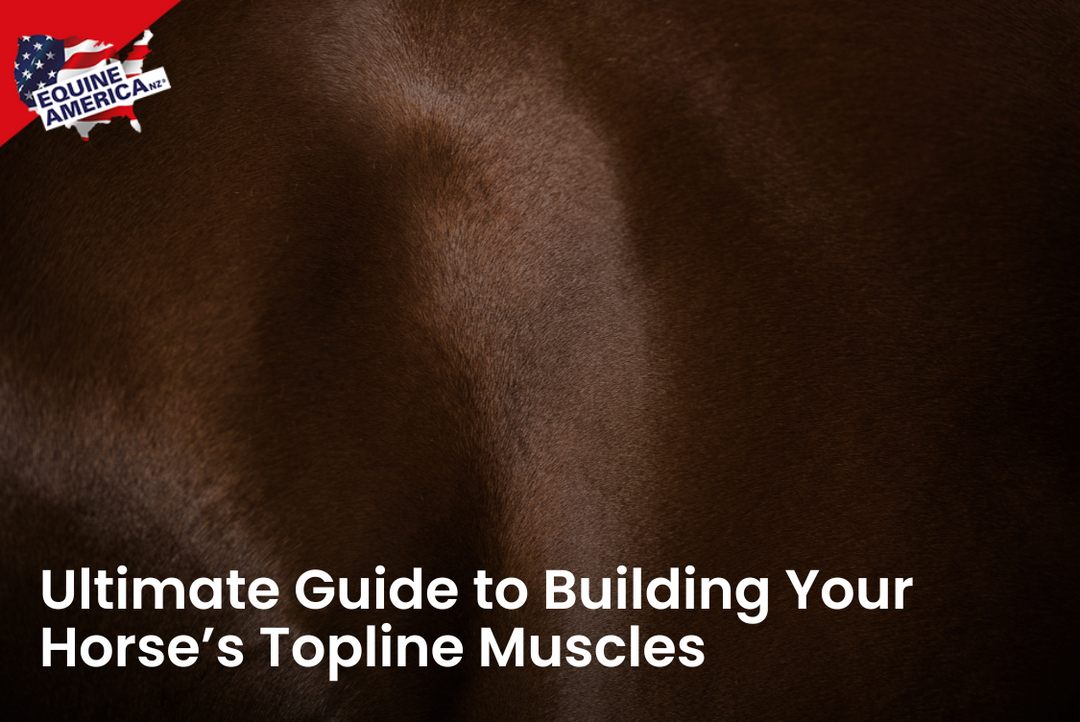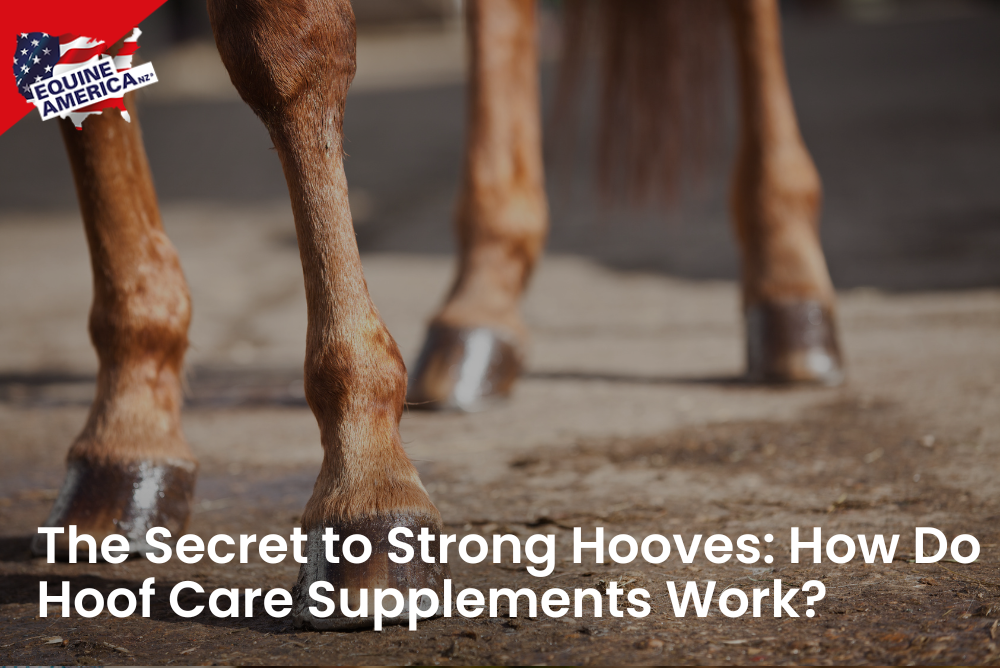
If you're serious about your horse’s health, you’re likely considering horse supplements. While good pasture and quality feed cover the basics, horses need additional nutrients to truly thrive. Whether it’s a performance horse or a leisurely pasture companion, horse supplements help maintain strong bones, shiny coats, and healthy digestion. But how do you know which ones are worth it? Let’s dive into the most important supplements and why your horse needs them.
Why Do Horses Need Supplements?
Many people believe hay and grain provide everything a horse needs. While that covers general nutrition, horses often face specific deficiencies, especially when their workload increases or their diet lacks diversity. Just like humans, a balanced diet isn’t always enough. Supplements help fill these gaps, improving overall health.
Key reasons horses need supplements include:
- Intensive training or competition demands
- Lack of essential nutrients in their natural diet
- Age-related deficiencies or joint wear
- Conditions like colic or ulcers
With that in mind, let’s explore the most common types of horse supplements and equine products.
Common Types of Horse Supplements
Choosing the right supplements depends on your horse’s needs. From hoof health to digestion, there’s a supplement for everything. Below, we’ll break down the most commonly used horse supplements and their benefits.
Joint Supplements
Horses, especially those used for sports or heavy work, often develop joint problems. Supplements support joint health, reducing inflammation and promoting flexibility. Look for key ingredients like:
- Glucosamine: Aids cartilage repair
- Chondroitin: Prevents cartilage breakdown
- MSM: Reduces inflammation and joint pain
These ingredients work together to ensure your horse stays mobile and pain-free, even as they age.
Digestive Supplements
Many horses have sensitive digestive systems, prone to conditions like colic or ulcers. Digestive supplements keep their gut healthy and functioning smoothly. Popular digestive aids include:
- Probiotics: Support good bacteria in the gut
- Prebiotics: Feed beneficial gut bacteria
- Enzymes: Help with nutrient absorption
Using digestive supplements can prevent common issues like bloating, gas, and discomfort, ensuring your horse feels its best.
Hoof Supplements
Good hooves are vital for any horse. Brittle, cracked hooves can lead to lameness or injury, so it’s important to keep them in top condition. Supplements for hoof health contain:
- Biotin: Encourages hoof growth and strength
- Zinc: Supports hoof structure
- Methionine: Aids in protein synthesis for stronger hooves
Adding these to your horse’s routine can result in stronger hooves that are less likely to crack or split.
Coat and Skin Supplements
A healthy coat isn’t just for looks—it’s a sign of good internal health. Coat supplements improve your horse’s skin condition, reduce itching, and give their coat a glossy shine. Key ingredients include:
- Omega-3 fatty acids: Reduce inflammation and support skin health
- Vitamin E: Protects cells from damage
- Flaxseed oil: Adds shine and reduces dryness
By using coat and skin supplements, you’ll see a noticeable difference in how your horse looks and feels.
Electrolyte Supplements
Horses lose essential minerals when they sweat, especially during training or hot weather. Electrolyte supplements replace these lost minerals and help prevent dehydration. They often contain:
- Sodium: Essential for water balance
- Potassium: Regulates muscle function
- Calcium: Supports heart and muscle contractions
Providing electrolytes ensures your horse stays hydrated, maintains energy levels, and avoids muscle cramps.
When Should You Give Your Horse Supplements?
It’s not just about what to give—knowing when to add supplements to your horse’s diet is equally important. Horses have different needs depending on their life stage, activity level, and health.
Here are some key moments to introduce supplements:
- Young horses: Support growth with joint and hoof supplements
- Performance horses: Maintain energy, hydration, and muscle recovery
- Older horses: Focus on joint support and digestion for comfort
- During illness or recovery: Use digestive and immune-boosting supplements to aid healing
By adjusting their supplement routine throughout their life, you help your horse stay in peak health.
How to Choose the Right Supplements for Your Horse
Walking into a feed store or browsing online can be overwhelming. There are so many products claiming to offer the best results. So how do you pick the right one for your horse?
Here’s what to look out for:
- Check the ingredients: Ensure supplements contain proven nutrients like biotin, glucosamine, or probiotics
- Know your horse’s needs: Each horse is different, so match the supplement to their specific issues
- Consult your vet: A vet can provide advice based on your horse’s medical history
- Start slow: Introduce one supplement at a time to monitor how your horse reacts
Making informed choices helps you avoid wasting money on unnecessary or ineffective products.
Frequently Asked Questions
Can I give my horse too many supplements?
Yes. Over-supplementing can cause imbalances or toxicity, especially with fat-soluble vitamins. Always follow recommended dosages and consult with a vet before introducing multiple supplements.
How long does it take to see results from supplements?
It varies. Some supplements, like electrolytes, show quick results after intense activity. Others, like joint or coat supplements, may take a few weeks to months before noticeable improvements occur.
Are natural supplements better than synthetic ones?
Both can be effective. Natural supplements are often gentler, but synthetic versions may offer higher concentrations of key nutrients. The choice depends on your horse’s needs and preferences.
Can supplements replace a good diet?
No, supplements should complement a balanced diet, not replace it. Quality forage and feed are essential. Supplements fill in gaps that diet alone can't cover.
Do all horses need supplements?
Not necessarily. Some horses on balanced diets may not need them, while others benefit greatly, especially if they have specific health concerns. Your vet can guide you on what’s best.
Your Horse Deserves the Best Care
When it comes to your horse’s health, supplements can make all the difference. Whether supporting joint health, promoting a shiny coat, or improving digestion, the right supplements help your horse feel and perform better. Visit Equine America NZ for top-quality horse supplements and start giving your horse the care they deserve!
Please give us a call at Equine America NZ today at 0800 440 888 to learn more or leave an enquiry.




